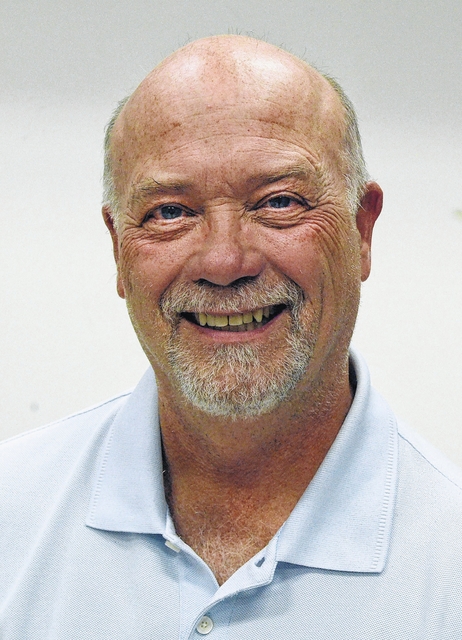As I’ve told you before, if you’ve been with me for a while, my teaching days are still with me despite the fact that this fall marks the 19th school year that commenced without my standing in front of students. As I wrestled with the decision back in the spring of 2005 as to whether to bring to a close that chapter of my working life, it was a couple of my friends who intimated that it was probably the right move if the thought didn’t dissipate after, perhaps, a bad day or two.
One pal, Harry Johnson, told me that the official business of education would certainly go on with or without me in pretty much the same fashion so moving on to another line of work surely wasn’t such a bad idea. Another pal, Mike Schepp, told me when I was wrestling with the thought of taking a smaller pension by leaving after 32 years rather than teaching three more years that job satisfaction always is paramount to compensation. In Mike’s words, “Personal happiness always should trump money.”
Yet, despite the many years that have gone by without my writing anything on a blackboard, I still have frequent dreams about being back in the classroom, something that utterly amazes my Lady Jane, who retired the same year that I did and walked out of the original St. Marys Memorial High School on West South Street with me on that last day of our last school year.
I think among the multifarious branches of the “English tree” that I tried to cover with my students, perhaps my favorite limbs would be the lessons I taught on use of figures of speech. Among those figurative devices such as epigram, euphemism, metaphor, hyperbole and many others, I think my favorite was exposing them to paradox, the use of contradiction to convey an element of truth. It was something George Orwell did so effectively in Animal House, in which he wrote, “All animals are equal, but some animals are more equal than others,” thereby exposing the fallacy that in any society there ever has been such a thing as true equality.
Of all the successful uses of paradox, and there are surely several such as the verifiable truthfulness that there are indeed times in life when less is more and that cowards certainly do die many times before their actual deaths, there is one for me that stands out, one I used recently in communicating with a friend.
Unlike the fairer sex, most guys I know see the phone more as a utilitarian device rather than one to use for extended conversations to catch up and to reminisce about shared experiences. While my pals and I aren’t opposed to such in-depth chewing of our fat, we’re far more likely to engage in such confabulation, say, over breakfast at LuLu’s or some mugs of suds at the Beer Barrel.
However, when it comes to texting, my main guys and I will share frequent texts to convey a few thoughts. And, it was on a recent Saturday when I received a text from an old, young friend, paradoxically true since our shared past is indeed old although, at just 59, he is certainly young compared to my 72.
Brad Clark and I spent several summers working together in the last part of the 1980s and on into the ‘90s in Lima’s Parks and Recreation Division’s eight-week playground program. While I wound up returning for 24 summers, which I think makes me the career leader if stats on our city’s seasonal workers were kept, I wouldn’t be surprised if Brad holds down second place with his eight summers, given the fact that seasonal workers generally don’t make such longer-term commitments to return year after year. However, Brad and I were both schoolteachers looking for work that would allow us to be outside and around kids in non-classroom settings while earning some extra cash to supplement our rather meager teaching salaries.
While swapping texts about a column I’d done on the special mentor-protégé relationship shared by former professional boxer and Lima Senior graduate Aaron McLaurine and his trainer Gary Akers prior to Akers’ passing in 1998, I did what I always try to remember to do when communicating with old friends that I don’t see much anymore. I tell them that I’m thankful for their friendship and especially for the support they’ve provided when storm clouds blanketed my life. They did so in my personal life many years ago and again, very recently, with some significant health concerns.
Brad texted me back and told me he didn’t really feel he’d done all that much. It was then I was able to remind him by using paradox of an apparent contradiction that, to me, is unquestionably true. While it may be only a phone call or an encouraging text just to remind someone that another cares, a seemingly small gesture in the eyes of some, the truth is for someone dealing with a lot of pain, be it emotional or physical, the people who help a little most assuredly help a lot.
I certainly know from past experience that no gesture of kindness is too small to be considered great.
John Grindrod is a regular columnist for The Lima News, a freelance writer and editor and the author of two books. Reach him at [email protected].







